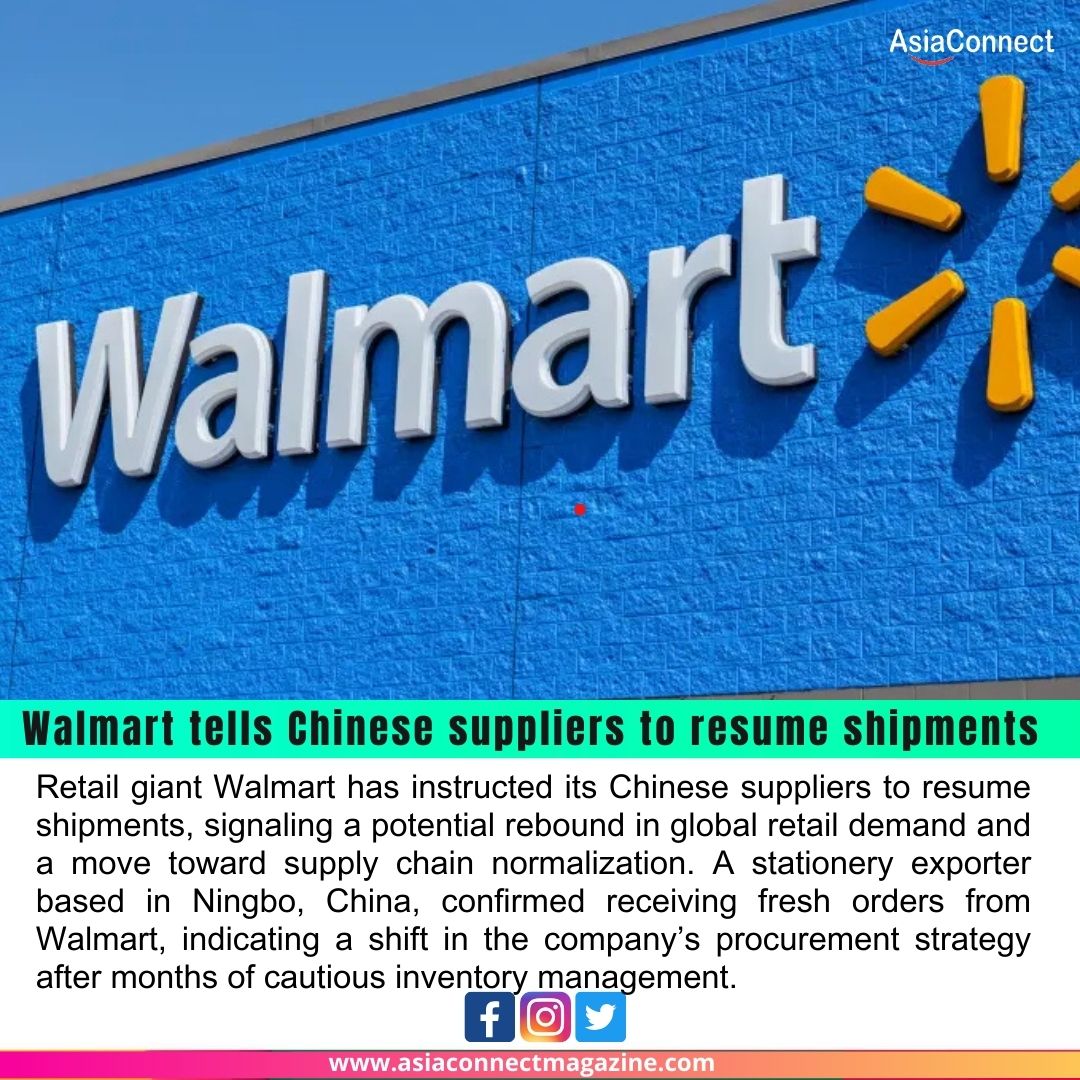Retail giant Walmart has instructed its Chinese suppliers to resume shipments, signaling a potential rebound in global retail demand and a move toward supply chain normalization. A stationery exporter based in Ningbo, China, confirmed receiving fresh orders from Walmart, indicating a shift in the company’s procurement strategy after months of cautious inventory management.
This development marks a pivotal moment in Walmart’s global sourcing operations. Over the past year, the company—like many other multinational retailers—adopted a conservative stance on inventory due to economic uncertainty, inflationary pressures, and weakened consumer demand. As a result, many suppliers in China saw a significant slowdown in orders. The recent request to resume deliveries, therefore, suggests that Walmart may be preparing for an uptick in sales or seasonal demand, potentially driven by back-to-school and holiday shopping cycles.
Positive Signal for Chinese Exporters
The confirmation from the Ningbo-based exporter reflects renewed confidence in Walmart’s long-standing supply chain partnerships in China. Ningbo, one of China’s major export hubs, plays a critical role in global logistics due to its proximity to key ports and manufacturing zones. For many small and medium-sized suppliers in the region, Walmart’s renewed orders could serve as a much-needed lifeline after months of declining business.
Exporters and logistics providers are cautiously optimistic that this move will lead to a broader resumption of trade with other major Western retailers. As companies look to rebuild inventory and navigate a more stable post-pandemic consumer environment, China’s role as a manufacturing powerhouse remains vital.
Walmart’s Strategic Shift
Walmart’s decision also comes amid its ongoing efforts to balance supply chain efficiency with global diversification. The company has been exploring supplier networks in Southeast Asia, Latin America, and the U.S. to mitigate risks from geopolitical tensions and over-dependence on any single region. However, the scale and cost-effectiveness of Chinese manufacturing continue to make it an indispensable part of Walmart’s sourcing ecosystem.
Analysts believe this latest move could be a result of better inventory control and clearer visibility into consumer trends. With inflation easing in several markets and consumer sentiment gradually improving, Walmart may be positioning itself to capitalize on renewed demand without facing stock shortages.
Implications for Global Supply Chains
Walmart’s call to resume shipments could have ripple effects across global supply chains. It not only boosts confidence among Chinese suppliers but also signals to the broader retail and logistics sectors that a stabilization phase may be underway. Freight forwarders, port operators, and warehousing companies could see a rise in activity if the trend continues.
Moreover, this decision underscores China’s continued relevance in global trade despite ongoing geopolitical tensions and diversification efforts. While reshoring and nearshoring have gained momentum, China’s production capacity, cost competitiveness, and infrastructure remain unmatched in several categories.
Conclusion
As Walmart asks Chinese suppliers to restart shipments, the move could mark a turning point for global retail sourcing and supply chain recovery. For suppliers in regions like Ningbo, it brings hope for renewed business stability. For Walmart, it reflects a strategic recalibration to meet evolving consumer demands with efficiency and reliability.
Keywords: Walmart China shipments, Ningbo exporter Walmart, Walmart suppliers resume, global supply chain news, Walmart sourcing strategy, China export recovery, retail inventory management, Walmart back-to-school orders, Walmart holiday season sourcing, Chinese manufacturing





